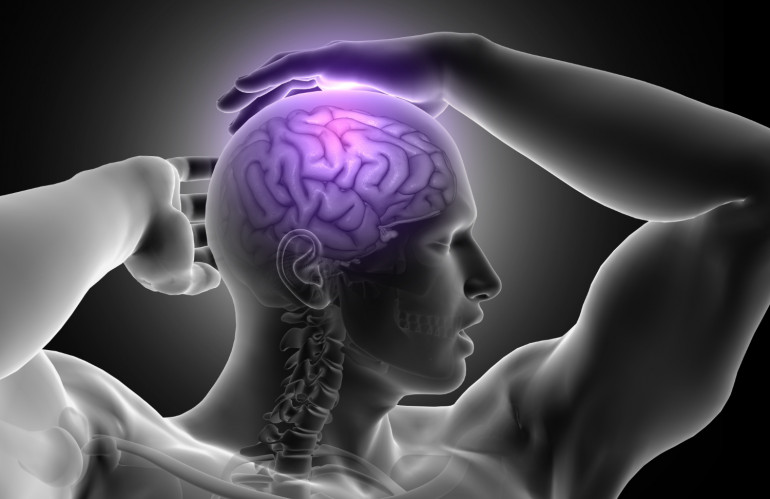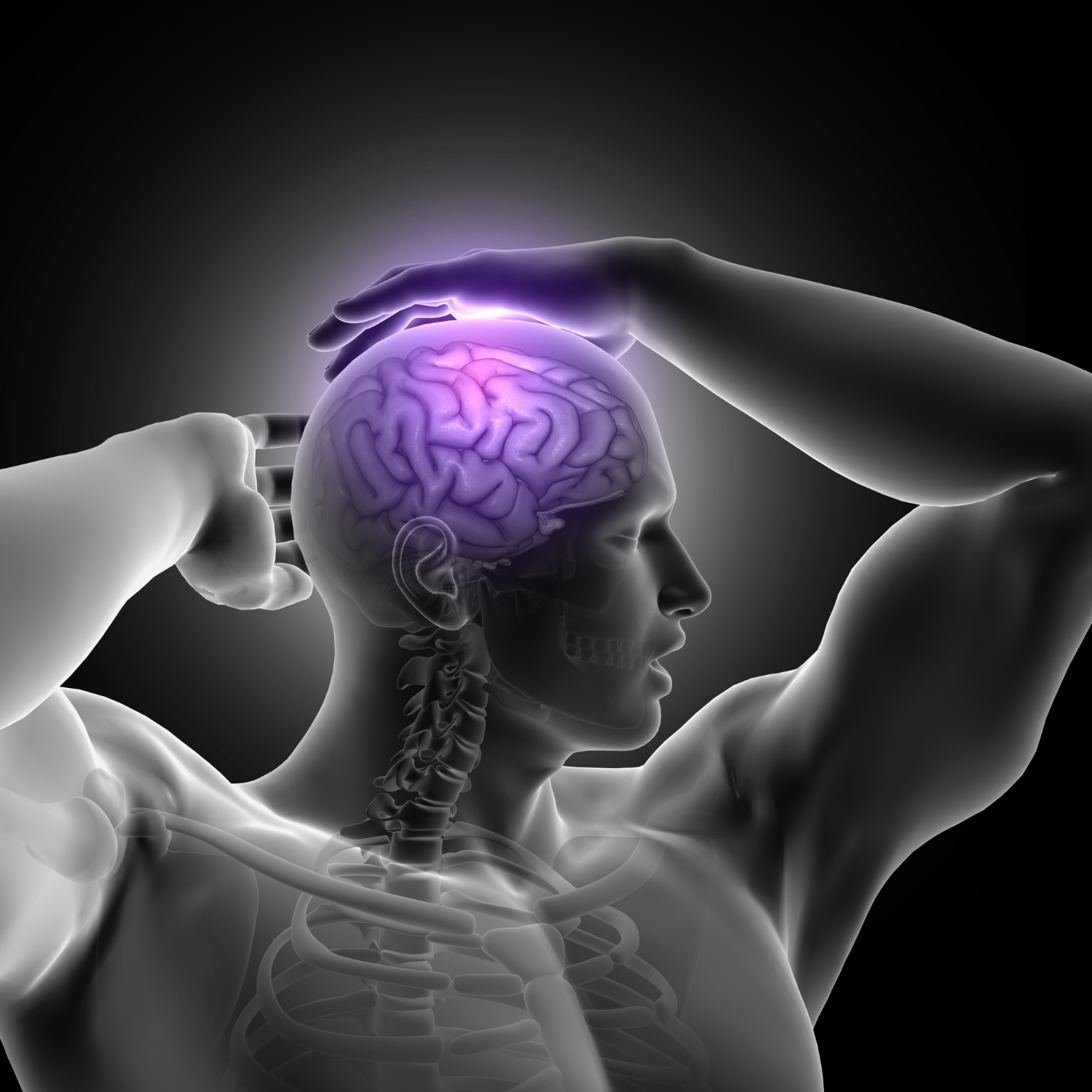Do you know the science that recommends brain gymnastics?

Photo: Freebeck
Planning, organizing, thinking… language. Our mind and perception have incredible capabilities and are almost always underestimated in the development process that occurs throughout life.
In this context, cognition is the ability to use brain structures to perceive and process information from the environment and use it in mental reasoning or problem-solving activities.
Cognitive functions include sensory perception, motor skills, learning, attention, memory, language, thinking, decision-making, etc.
The neuroscientist explained that “different areas of the brain are involved in carrying out cognitive functions, with specific areas responsible for different aspects of cognitive processing, all of which are necessary for academic performance, work, social relationships and other areas of life.” Partner of SUPERA – Gymnastics for the Brain, Livia Chachi.
Executive functions are a specific set of skills within a larger group of cognitive functions. It is the set of cognitive skills that allow for planning, organization, decision-making, inhibitory control, cognitive flexibility, working memory, and behavioral monitoring.
He explained that “executive functions are the cognitive functions directly responsible for organizing and coordinating complex mental processes to achieve goals and objectives, and adapting behavior according to the requirements of the environment.”
Understand your executive function
The executive function of the brain is mainly divided into three points:
Cognitive flexibility: Ability to switch between different ideas, strategies, or tasks adaptively. Cognitive flexibility allows you to adjust behavior according to environmental requirements and overcome obstacles or changes in circumstances. This is what we use when we think of effective strategies to achieve goals, anticipate obstacles, organize resources, and also when things go wrong and we need a backup plan.
Working memory: The ability to temporarily retain and process information in the mind to perform complex cognitive tasks. Working memory is essential for problem solving, reasoning, and understanding information, but it has natural limits and only focuses attention on one activity at a time.
Inhibitory control: The ability to inhibit or control inappropriate or irrelevant impulses, thoughts, or behaviors. Inhibition is related to the ability to resist distractions, delay immediate rewards in favor of long-term goals, and control impulsive behaviors.
How do problems in this area affect your life?
In this case, the effects depend very much on the type of dysfunction, but in general, small dysfunctions can actually cause huge effects “for example, someone with dyslexia,” explains Livia Ciacchi, neuroscience partner at SUPERA – Gymnastics for the Brain. “It is just a different organization of the brain when dealing with written language, but it is enough to work hard, and for a long time, to learn strategies for dealing with perception errors when reading.”
Executive functions in our daily lives interact all the time in all our daily activities. Imagine that to prepare to follow a plan to achieve a goal, you would need to use language to learn specific content and write steps and deadlines in a note. In this scenario, the better a person has mastery of language and memory, the more he or she will be able to take what they have learned and put it into practice while planning a goal.
The specialist explained that “executive functions depend on cognitive functions to have elements and structures in which they operate, and cognitive functions depend on executive functions for learning and improvement.”
Cognitive and executive functions across the lifespan
The cognitive functions of the entire brain are shaped from pre-birth through adolescence, with the first three years of life being crucial for building the emotional foundation for cognitive development, and ages 4 to 12 being critical periods for learning. Skills, language and socialization.
In childhood, executive functions are still emerging. That's why it's great to let kids explore the playground and get dirty, but we can't hold them responsible for any decision.
In adolescence and early adulthood we reach maturity in our prefrontal cortex and executive functions, and we can now exercise independence, but we are still vulnerable to making poor decisions because we are still learning which strategies work best.
After the age of 25, we can consider the brain to be mature and able to perform to its full potential, but always remember that this potential depends on everything that has been trained and learned so far. Social and communication skills also develop, allowing for effective navigation in personal and professional contexts.
In middle and older adulthood, executive functions may begin to decline due to brain aging. There is a gradual decline in cognitive processing speed, working memory, and cognitive flexibility. However, experience and norms acquired throughout life can compensate for some of these changes, allowing us to adapt effectively to the cognitive and emotional demands, especially if we continue to learn.
Memory and cognitive flexibility
The most common challenges that allow for lifestyle improvements are memory and cognitive flexibility. Memory because it depends on attention, and we can train concentration and concentration in different tasks, especially manual tasks, such as arithmetic operations on the abacus and reading on paper.
“Cognitive flexibility is highly needed in times of multiple technologies and high speed of information flow,” Livia warned. “We can train mental problem-solving strategies and organize routines that improve performance when adapting to different contexts.”
Cognitive stimulation in this sense
The first point of attention when faced with a difficulty is to perform the correct examination, that is, to determine whether it is just a difficulty, whether it is a neurodevelopmental disorder or an indication of some cognitive loss due to a neurodegenerative disease. This should only be done with appropriate specialists in each field, such as neuropsychologists, psychiatrists or neurologists.
Once the disorder or difficulty is recognised, several intervention paths can be followed, such as:
- Cognitive training: It involves repetitive practice of tasks and exercises designed to target specific cognitive skills such as working memory, selective attention, and cognitive flexibility. These programs can be tailored to the individual needs of the patient and are generally delivered in a structured and progressive manner over time.
- Cognitive behavioral therapy: Behavioral therapy may include behavior modification techniques to promote self-regulation and self-control. Strategies such as positive reinforcement, behavior modeling, and contingency management can be used to encourage desired behaviors and reduce problem behaviors.
- Compensation strategies: In some cases, it is helpful to teach compensation strategies to overcome areas of cognitive difficulty. This may include the use of technological assistive devices, organization and planning techniques, and environmental adaptations to facilitate daily functioning.
- Social skills training: For individuals who have difficulties with social interactions and communication, social skills training can be helpful. This may include practicing communication, conflict resolution and empathy skills through role playing, modeling and direct feedback.
- Psychosocial support: Psychosocial support, including individual or group therapy, family support, and caregiver education, can be essential to promote emotional well-being and cope with cognitive difficulties.
- Healthy lifestyle: Promoting a healthy lifestyle with a balanced diet, regular exercise, adequate sleep, and stress management can also have a positive impact on executive and cognitive functions. Studies have shown that healthy habits can improve brain plasticity and reduce the risk of age-related cognitive decline, including group cognitive stimulation classes.
*Written by Ana Lucia Ferreira
Tel: +55 12 99644-1625

“Wannabe internet buff. Future teen idol. Hardcore zombie guru. Gamer. Avid creator. Entrepreneur. Bacon ninja.”

